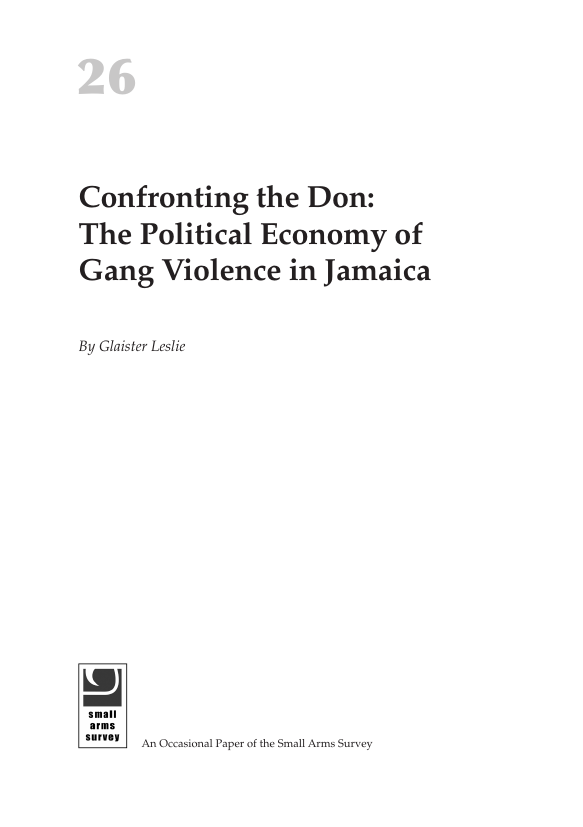
Confronting the Don: The Political Economy of Gang Violence in Jamaica (Occasional Paper 26)
Jamaica’s murder rate—62 per 100,000 in 2009— is one of the highest in the world.
The small island grapples with violent crime within a context of gangs, guns, and allegations of political and police corruption.
Confronting the Don: The Political Economy of Gang Violence in Jamaica, a Small Arms Survey, report presents an overview of the history, prevalence, and distribution of gangs, focusing in particular on their involvement in international drug and arms trafficking and the possible influence of deportees from the United States.
It finds that there is a dense social web connecting highly organized, transnational gangs to loosely organized gangs whose activities are often indistinguishable from broader community violence.
Persistent facilitation of gang activity by politicians continues to hinder targeted violence reduction efforts, despite the government’s public condemnation of crime and violence, and official support of violence reduction.
The report’s findings include:
- There are around 268 active gangs operating throughout the island, five times the number estimated in 1998.
- Gangs are accused of being responsible for as much as 80 per cent of all major crimes in Jamaica.
- Over the past decade, murders committed in Jamaica have almost doubled, and gun-related murders have driven the increase.
- Most firearms seized in Jamaica are traced back to three counties in the US state of Florida, all of which have large Jamaican populations.
- Most small arms used in crimes are believed to have entered the country illegally, but much of the ammunition appears to have entered the country legally before being transferred to illicit markets.
- The discovery in early 2010 of large amounts of illegal ammunition and firearms—all originating from the police force’s central armoury—has conclusively linked security forces to the distribution of ammunition and weapons to criminals.
- Reductions in Jamaica’s violence will be short-lived unless the linkages between politicians, organized crime, and gangs are severely eroded.
- Community policing may offer an important alternative to security forces’ more repressive approaches to crime control.
Have your say about Small Arms Survey publications and products: take 5 minutes to fill out our questionnaire.